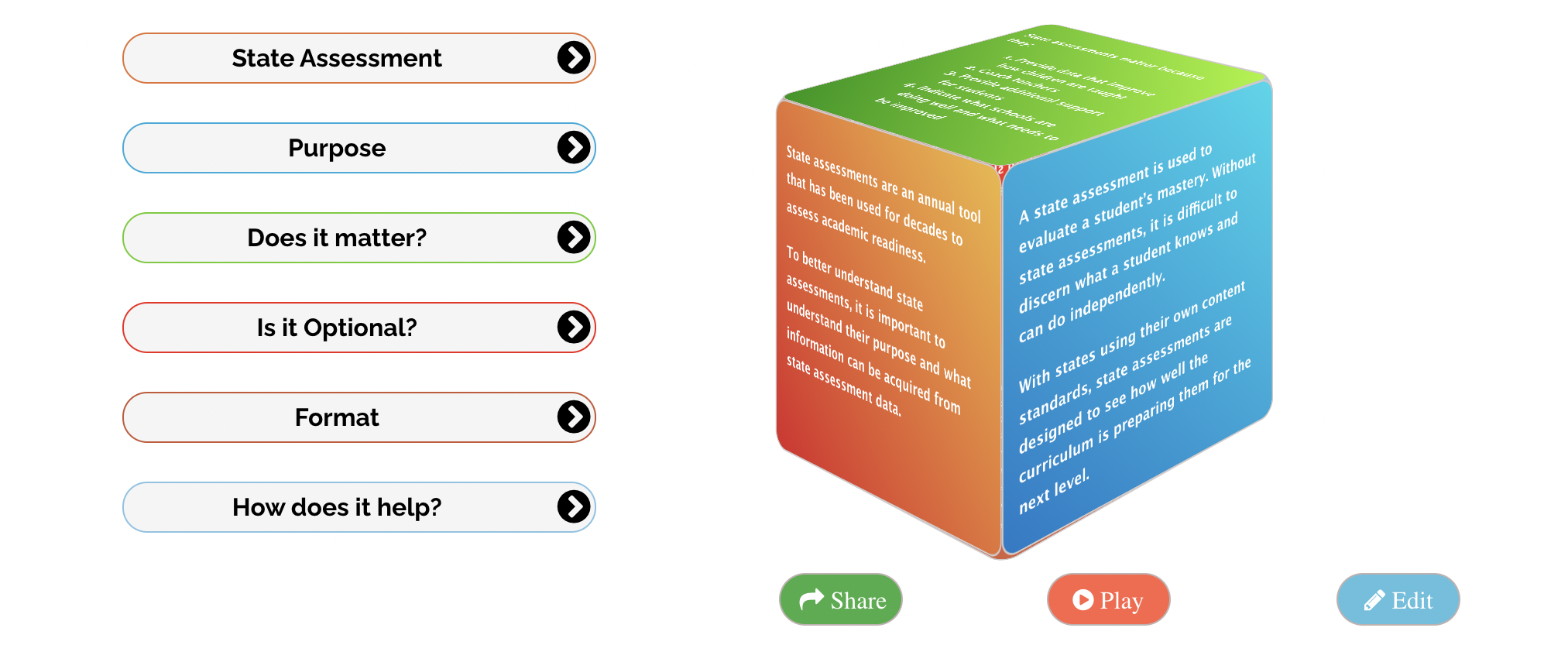 State assessments are an annual tool that has been used for decades to assess academic readiness. What does this mean? While states have their unique names for their state assessment, these are proficiency exams. To better understand state assessments, it is important to understand their purpose and what information can be acquired from state assessment data.
State assessments are an annual tool that has been used for decades to assess academic readiness. What does this mean? While states have their unique names for their state assessment, these are proficiency exams. To better understand state assessments, it is important to understand their purpose and what information can be acquired from state assessment data.
What is the purpose of a state assessment?
A state assessment is used to evaluate a student’s mastery. When children take the state assessment, it indicates how much they know about a specific grade´s content. As children progress from lower primary grades to intermediate and on to middle school and then high school, it is imperative that the basic building blocks of knowledge are being laid. Without state assessments, it is difficult to discern what a student knows and can do independently. Ensuring that children have a solid foundation is necessary if they are going to continue growing and refining skills. With states using their own content standards, state assessments are designed to see how well the curriculum is preparing them for the next level. In other words, the state assessment answers: how well is this child able to understand and apply content learned?
Does the state assessment matter?
From objectively assessing whether children are on track for their grade levels to holding schools accountable, state assessments do matter. While state assessments do not impact a childś grades in school, they provide key pieces of information. Analysis of this data yields insights into how well children are being taught in school. It can offer comparisons between schools and curriculum models since every public school in a state is required to take the same state assessment.
State assessments matter because they:
- Provide data that improve how children are taught
- Coach teachers
- Provide additional support for students
- Indicate what schools are doing well and what needs to be improved
Are State Assessments Optional?
Federal mandates require that public schools administer state assessments. The desire for every student to succeed in reading and math skills is why students are assessed at every grade level (grades 3 – 8) to see if they are succeeding as part of the Every Student Succeeds Act. This act formally known as, No Child Left Behind, seeks to ensure growth in reading and mathematics. Other statement assessments vary from one grade to the next but include assessments in science, social studies, language arts, written composition, and mathematics.
The Format of State Assessments
Each of these assessments offers invaluable data to help facilitate growth for students and educators. Since state assessments rely on various assessment styles, children are assessed using varying levels of Bloom’s Taxonomy. Through multiple-choice questions, short answer questions, and extended response questions, students must apply and demonstrate understanding of the content at varying complexity levels.
As previously noted, the subject areas that get tested vary. Some states evaluate each subject, including Arts and Humanities content. Other states may focus more exclusively on reading and math skills. Regardless of what is assessed, students are asked to apply state standards to answer a variety of questions. Thes range in complexity from recall questions to application type questions. Through the completion of such assessments, valuable analysis can be done to continue, refine, or entirely replan pedagogical practices to ensure students are excelling and preparing for the future.

